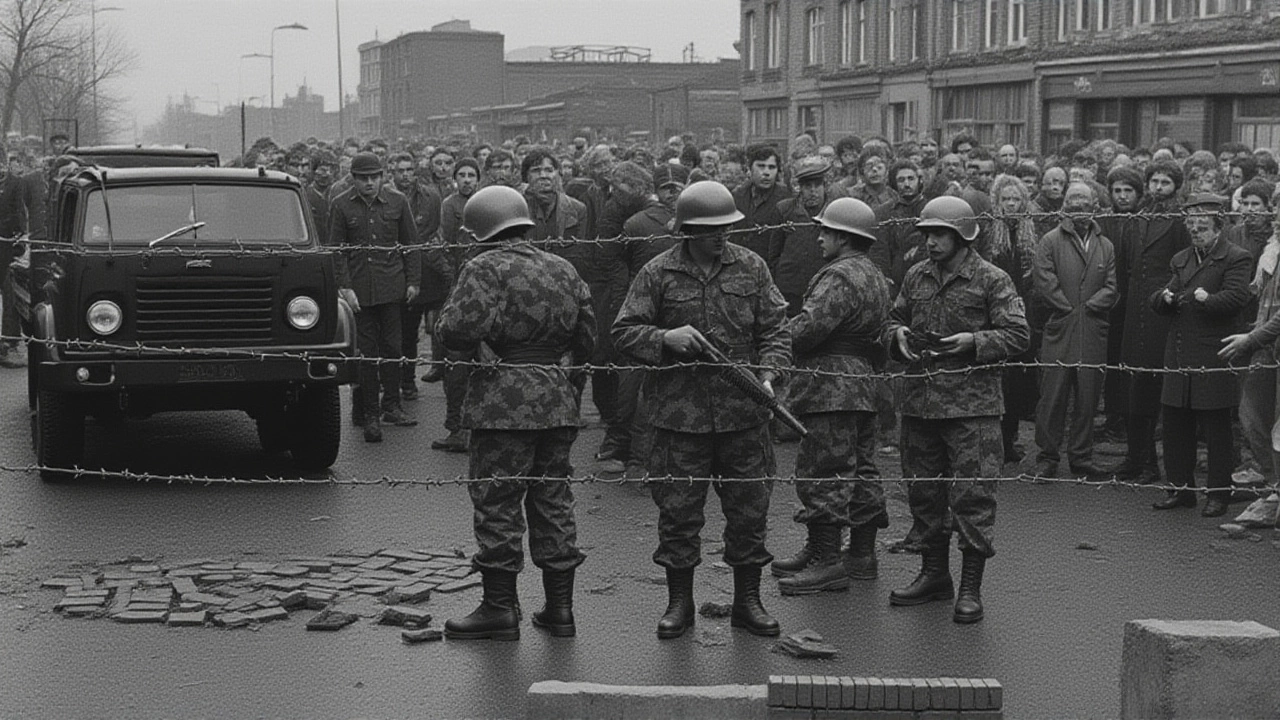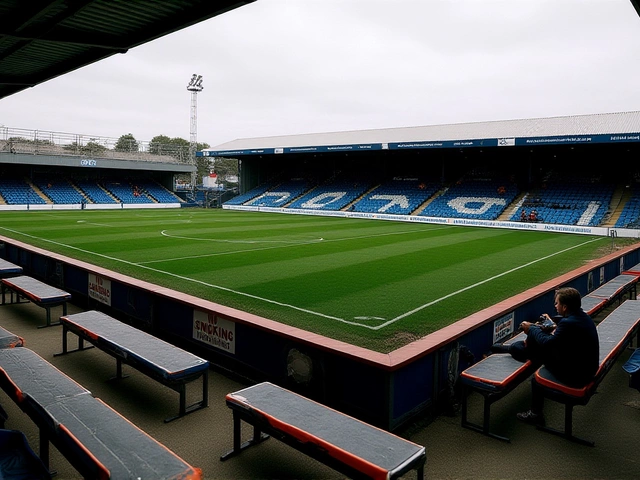Paratrooper "Soldier F" Acquitted in Bloody Sunday Trial

On 24 October 2024, a Belfast Crown Court jury cleared a former British Army paratrooper of all seven charges tied to the 1972 Bloody Sunday killings, a verdict that will reverberate through the still‑sensitive legacy of the Troubles.
During the hearing at Belfast Crown Court, located at 38‑40 Howard Street, Belfast, Northern Ireland, Mark Horner, Justice of the High Court told the gallery that the prosecution had failed to prove beyond reasonable doubt that the unnamed defendant – identified only as “Soldier F” – fired the fatal shots that claimed the lives of James Wray and William McKinney, or attempted to kill five other youths.
Background to the Trial
The case centred on the events of 30 January 1972, when soldiers from the 1st Battalion, Parachute Regiment, often shortened to 1 PARA opened fire on a civil‑rights march in the Bogside neighbourhood of Derry. The march, organised by the Northern Ireland Civil Rights Association, was part of a broader push against internment without trial.
According to the Bloody SundayDerry, Northern Ireland, 13 unarmed civilians were shot dead between 15:54 and 16:07 GMT, with a fourteenth victim, John Johnston, dying of his injuries months later. The 1972 incident remains one of the most contentious episodes of the three‑decade conflict known as the Troubles.
Key Evidence and Court Findings
The prosecution presented testimony from 127 witnesses – 47 of whom were former soldiers – and sifted through nearly 1,900 documents, including army logs and medical reports. Yet, as Justice Horner summed up, “the prosecution has not established beyond reasonable doubt that Soldier F was the individual who fired the fatal shots.”
Among the most telling gaps were conflicting statements about the exact positions of soldiers on the frontline and a lack of forensic evidence linking Soldier F directly to any of the weapons used. The defence argued that the chaotic nature of the 15‑minute shooting window made it impossible to single out any one individual.
Reactions from the Community and Officials
At a memorial gathering in the Bogside, community activist Paul Young questioned the verdict, invoking the broader toll of the conflict: “I ask you, who’s the terrorist? 44 soldiers were murdered in 1971 and 104 soldiers in 1972.” His remarks underscored the lingering pain felt by many nationalist families.
The Public Prosecution Service for Northern Ireland (PPSNI), led by Director Stephen Herron, announced on 25 October 2024 that it would not appeal the decision, citing the high legal threshold required for overturning an acquittal.
The families of the victims, represented by the Bloody Sunday Justice Campaign, indicated they would seek a judicial review of the prosecution’s decision within the statutory 28‑day window. Meanwhile, the Historic Investigations Unit, created under the Northern Ireland (Stormont) Act 2016, said its civil inquiries into the deaths would continue unabated.
Historical Context: From Saville to Today
The 2010 Saville Inquiry, chaired by Lord Saville of Newdigate, concluded that the victims were unarmed and posed no threat, labeling many soldiers’ accounts as “untrue.” The inquiry’s £191.6 million cost and its damning findings kept the memory of Bloody Sunday alive in British politics for a decade.
Following the Inquiry’s publication, the British government issued a formal apology in 2010, but no further criminal prosecutions were pursued until the 2019 decision by the PPSNI to charge Soldier F, a move that was itself the result of a 2016 review of historical cases.
What Comes Next?
Legal scholars anticipate that any judicial review will focus on whether the PPSNI exercised its discretion properly, rather than revisiting the factual matrix of the 1972 shooting. The Historic Investigations Unit, however, remains empowered to recommend further civil actions, potentially paving the way for new compensation claims.
For the broader public, the acquittal may feel like a closed chapter, yet the underlying political and emotional wounds remain. The verdict highlights the delicate balance courts must strike when confronting decades‑old atrocities amid a society still grappling with its divided past.
- Acquittal date: 24 October 2024
- Defendant: “Soldier F”, former 1 PARA paratrooper
- Charges: 2 murder, 5 attempted murder
- Trial start: 16 September 2024 at Belfast Crown Court
- Key verdict reason: insufficient proof beyond reasonable doubt
Frequently Asked Questions
Why was Soldier F’s identity kept anonymous?
A court order protects Soldier F’s name to safeguard his privacy and the safety of his family, a common practice in high‑profile historical prosecutions where the individual’s identity could inflame community tensions.
What does the verdict mean for victims’ families?
While the acquittal ends the criminal dimension of the case, families can still pursue civil claims or judicial reviews. Many see the decision as another chapter in a long struggle for acknowledgment and reparations.
Will there be another trial related to Bloody Sunday?
The PPSNI has stated it will not appeal, and no other individuals are currently facing criminal charges. However, the Historic Investigations Unit continues to examine civil aspects, so further legal action is possible but unlikely to be criminal.
How does this verdict fit into the wider history of the Troubles?
Bloody Sunday remains a symbolic flashpoint of the Troubles. The verdict underscores how decades‑old events are still being reassessed in courts, reflecting ongoing attempts to reconcile the past with present legal standards.
What role did the Saville Inquiry play in this case?
The 2010 Saville Inquiry concluded that the victims were unarmed and that soldiers had given false accounts. Its findings formed the factual backbone for the 2024 prosecution, even though the court ultimately found insufficient evidence to convict Soldier F.




